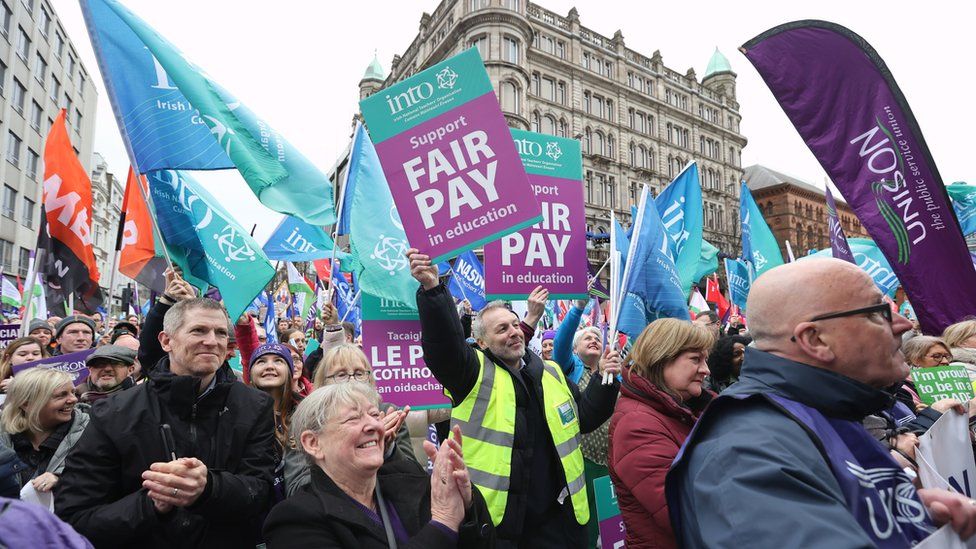
Most public sector pay decisions are devolved to Stormont
By John Campbell
BBC News NI economics and business editor
A trade union body is warning of further industrial action in Northern Ireland if public sector pay falls behind other parts of the UK.
Most public sector pay decisions in Northern Ireland are devolved to the power-sharing government at Stormont.
But with no ministers in place and severe pressure on budgets it is not clear what pay awards will be made.
The trade union umbrella body NIC/ICTU represents about 800,000 workers affiliated through 64 trade unions in Northern Ireland and the Republic of Ireland.
It said there would be a carnival of industrial unrest if pay for Northern Ireland public servants was allowed to fall further behind rates on offer in England and Wales.
Police and prison officers in England and Wales will receive a 7% pay rise, while teachers and junior doctors will get a 6.5% and 6% rise respectively.
Dr Tom Black of the doctors’ union the British Medical Association said the situation was “completely unacceptable” for healthcare staff in Northern Ireland.
“It certainly does not make them feel valued and it will not stem the tide of practice closures or of doctors looking to retire or work elsewhere where there is better pay and more value is placed on the vital role doctors have in society,” he said.
Final pay offer
Prime Minister Rishi Sunak said he had accepted recommendations made by the pay review bodies “in full”.
He said the rises would not be funded by borrowing more or increasing taxes.
Image source, Henry Nicholls/PA Media
The prime minister announced the pay awards at a press conference on Thursday
He added that the offer was “final” and further industrial action would not change that decision, saying: “There will be no more talks on pay.
“We will not negotiate again on this year’s settlements and no amount of strikes will change our decision.”
Another complicating factor in Northern Ireland is that if the UK government makes new money available for pay deals in England, the consequential money for Northern Ireland cannot be used for pay deals.
Instead it must first be used to pay off last year’s Stormont overspend.








